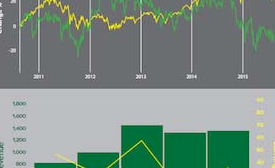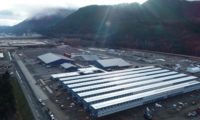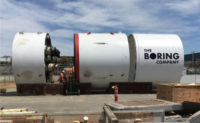The election of Justin Trudeau as Canada’s prime minister should crack open new opportunities for Bird Construction, with the contractor working to diversify its portfolio of projects amid lowered demand in the profitable industrial and oil and gas sectors.
Bird and the stocks of other major construction firms jumped after the Oct. 19th federal elections, which gave the infrastructure-happy liberal party a majority in the Canadian parliament.
Canada’s new ruling party has pledged to spend $60 billion over the next decade on public transportation, affordable housing, child care centers and other “social infrastructure.”
The government spending plan comes as Bird, which is based in Mississauga, Ontario, expands its work on government and institutional projects.Bird’s stock jumped 6.85% on news of the Trudeau victory.
“Certainly the liberals coming to power is the best possible outcome,” said Maxim Sytchev, managing director and head of research at Dundee Capital Markets. “It is the party that has committed to spending the largest amount on infrastructure over the next ten years.”
Bird saw its pipeline of industrial projects balloon over the past few years, having announced, back in 2013, $400 million (C) in new contracts, include a deal to build several buildings at the Fort Hill oil sands project in Alberta.
The next year, 2014, Bird's earnings tripled, to $36.2 million (C) , on $1.4 billion in revenue.
But those projects are now starting to cycle off, with changed economic circumstances forcing Bird to shake up its mix of projects, analysts say.
With Canada’s economy slowing amid drooping Chinese demand for raw resources like oil, minerals and metals, Bird has expanded its array of institutional projects, recently inking a deal to build the Moncton Downtown Event Center.
Bird is also closing in on the nod for a major school project in Saskatchewan while nailing down contracts to build a composting facility in Calgary and a major rail maintenance complex as well.
The company has reported a record backlog of work, with oil and gas related projects having fallen from 40% of Bird’s total portfolio in 2014 to 25% this year, Sytchev said.
“It is a huge credit to their business development team,” he said.
Still, the institutional work coming on the books is less profitable than some of the oil and gas and industrial sector projects Bird is winding down, Sytchev noted.
The difference in profitability can be as much as 100 to 200 basis points, he noted.
“Even though you have a backlog, it is probably going to come at the price of a lower margin,” Sytchev said.
The trend towards a higher volume of somewhat less profitable work has analysts split on the outlook for Bird’s stock.
Dundee Capital’s Sytchev gave Bird a “neutral rating.”
By contrast, analysts at Canaccord/Genuity slapped a sell recommendation on Bird’s stock.
The report argues that 2015 will represent an earnings “peak” for the big contractor, with “opportunities in Bird's "bread and butter" industrial segment few and far between in our view as weak commodity prices have resulted in several project delays.”
While acknowledging Bird’s huge backlog of work, the analysts note the projects have a profit margin that is “materially lower.”
That trend will only accelerate as the “last of Bird’s oil sands projects are worked off,” the report notes.
“In our view, 2015 represents the peak of cycle earnings and we see EPS (earnings per share) declining through 2017,” analysts Yuri Lynk and Roma Trusz wrote.
Meanwhile, how quickly Canada’s new ruling Liberal Party will be able to roll out those promised tens of billions of dollars in infrastructure work remains to be seen.
“The tap won’t turn on tomorrow,” Sytchev said. “It will take a while for the programs to get approved.”
“As you can imagine, it will be fierce competition to get the contracts,” he added.





Post a comment to this article
Report Abusive Comment